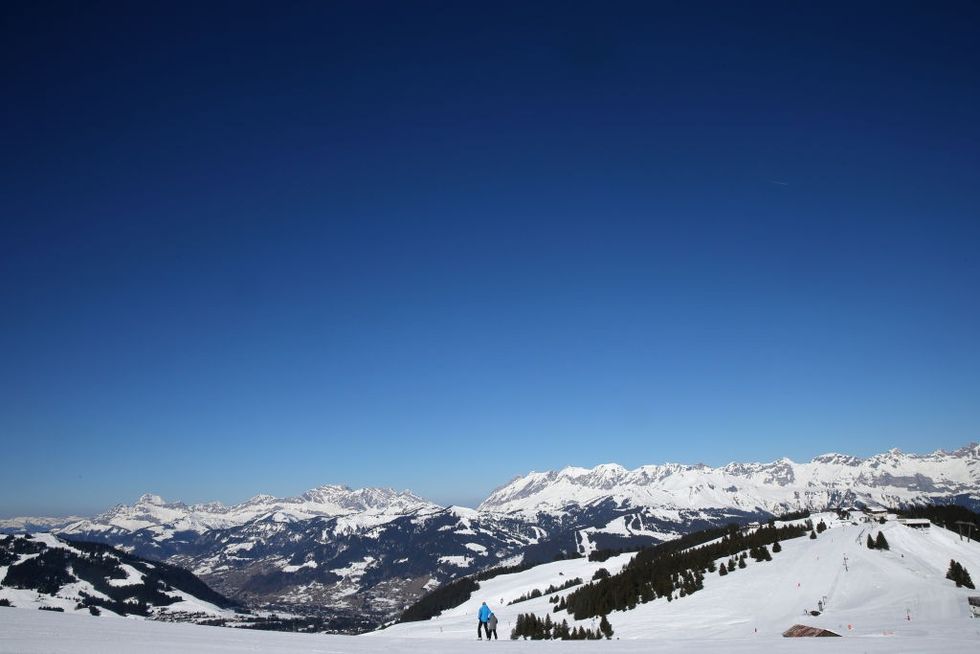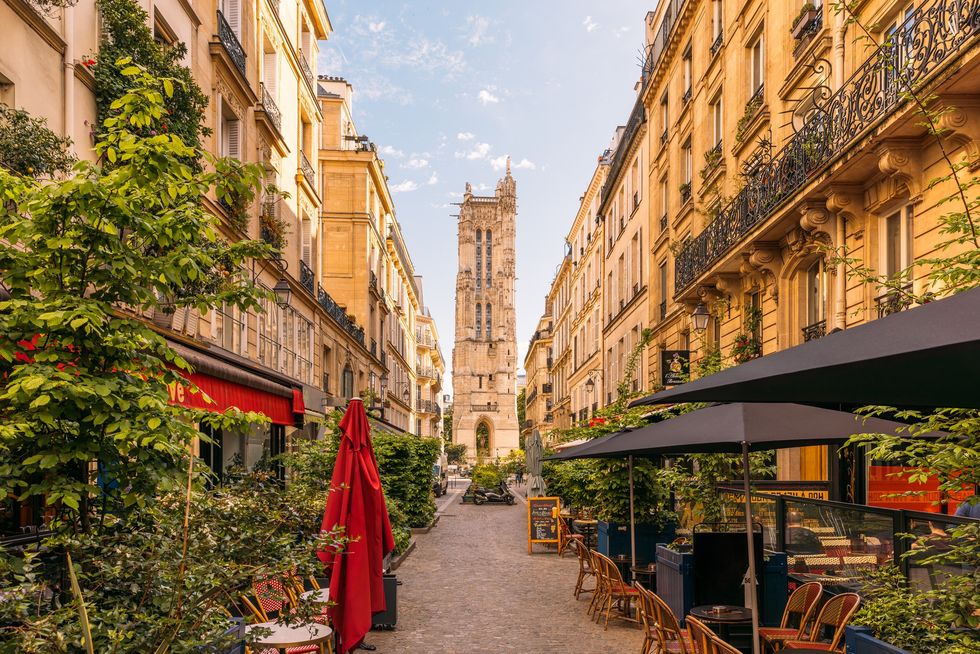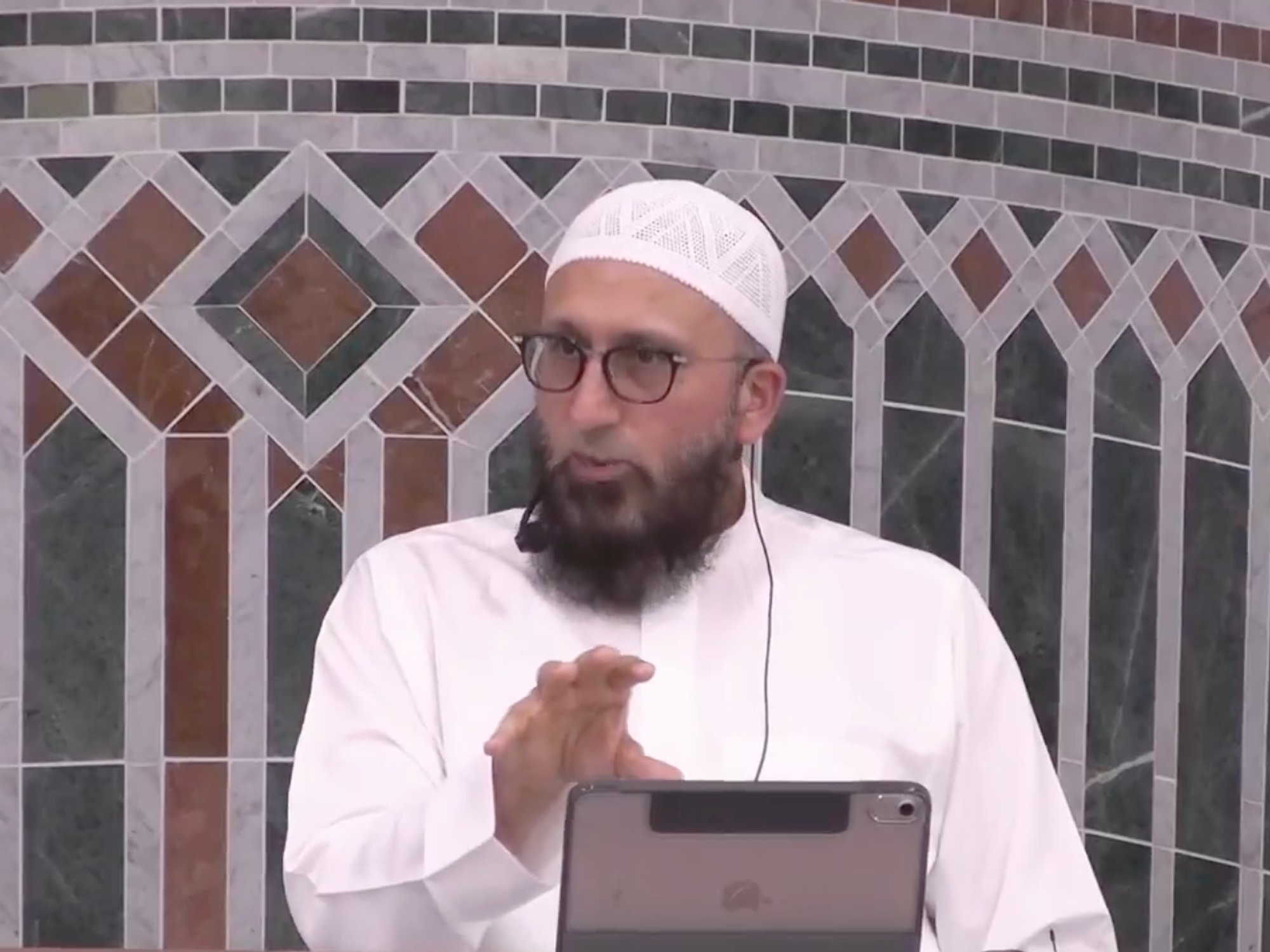'I'm an expat - if you're moving to France you must carefully consider your location and there's just so much choice'

GB News is talking to expats across Europe and the world who have exclusively revealed the best places to live, tips and tricks for moving abroad, and the potential pitfalls to avoid. This week, an expat in France shared the essential factors to consider before choosing where to live
Don't Miss
Most Read
Latest
On a family trip to Nord-Pas de Calais in rural France some 20 years ago, Janine Marsh bought a cheap, run-down house on a whim.
For many years she split her time between her home in Beckenham, London and her new home in France, before eventually taking the plunge and relocating permanently.
Janine spoke exclusively to GB News about her move to France, sharing that it's a far cry from London living. She revealed that she is the proud owner of 52 pets and pays for beer at the local bar with her chickens' eggs.
This time, the expat revealed the best places in France for British expats to relocate to, touching on essential factors like the weather, proximity to the UK, facilities, internet and mobile phone service, and property prices.
France is vastly different from one location to another, so making the right choice is imperative.

'France has such a diverse landscape that the choice is huge: a chalet in the Alps, seaside towns, country villages, cities and towns'
|GETTY IMAGES
Weather
Many Britons leave the UK in search of sunnier skies and warmer days. Janine stated: "If it's sunshine you want, then you need to go south of Brittany but not all the way to the French Riviera.
"Charente-Maritime - which is a bit more than halfway down France, between Brittany and Bordeaux - is said to be the second sunniest area of France. However, it doesn’t have the extreme heat of the far south - or the prices.
"Head inland away from the coast and prices drop even more. You also need to think whether you want it really hot; temperatures in the 40s aren’t what Britons are used to and it can take a bit of acclimatisation.
"Likewise, if you don’t want it too rainy, the north might not be for you - though it’s not as bad as people make out.
"In Pas-de-Calais where I live, in a beautiful countryside area known as the Seven Valleys, it’s nicknamed by the southerners as the 'North Pole of France' as we have less sun and colder winters than the south, but it’s pretty much the equivalent of the weather in Cornwall."
Proximity to the UK
Janine advised: "If you want to be able to get to the UK easily then you need to be near a means of transport: airport, train, ferry.
"I live in Pas-de-Calais, about an hour from Calais where I can take Le Shuttle and be in the UK in just 35 minutes.
"I can also take the DFDS ferry from either Calais or Dunkirk (about a 20-minute drive from Calais) to Dover in 1.5 hours or two hours depending on which port I go from."
Britons looking to explore the rest of France also must take into account the transport links in their chosen destination.
"I travel a lot and I like to take the train everywhere," Janine said. "I’m about a 30-minute drive from the nearest train station which gets me into Paris in two hours which is okay for me.
"But in some parts of France, it’s quite a long drive to public transport. In parts of Brittany, for instance, it can take almost an hour to drive to a station."
Facilities
Before moving somewhere, it's also important to think about the practicalities - what is going on in your location?
Janine said: "If you want to be somewhere with good facilities - a bar, restaurant, doctor's surgery, school- you’ll need to think of moving to a town with those things.
"In my village, there are no shops at all, no bar, no nothing - just houses and a town hall.
"But some shops come to us; every week we have a fruit and veg van, a fishmonger, and a meat van. Bread is also delivered three times a week and in the next village - which is within walking distance - there’s a bread vending machine which is filled daily with baguettes and loaves.
"And the nearest supermarket and all facilities are about five miles away and with largely traffic-free roads, it doesn’t take long to get around."
As for school children, they are collected by a school bus to take them to and from school.
"But if you don’t drive, living in the countryside like I do is not really going to work," Janine warned. "There’s no bus service here, no public transport and it’s too far to walk to a connecting bus service."
Internet and mobile phone service
Janine told Britons: "If you’re intending to work in France, especially with so many remote working opportunities now, consider the internet and mobile phone service.
"It’s not a major problem because generally speaking, the internet and mobile phone service is good in France.
"There’s been a big push for super-fast fibre optic rollout across France - but if you’re reliant on the internet, check that you have a good service."
LATEST DEVELOPMENTS

'Cities are expensive - you’re getting all the facilities and great transport links'
| GETTY IMAGESShe warned that not having mobile phone coverage can be a "real problem" in parts of France.
She said: "First, it’s a backup if your internet does go down, but more importantly, it’s very hard to do banking or buying things online if you can’t get a mobile phone signal.
"I have lost count of the times I had to run up a hill outside my house to get a signal to accept a code - or my other half would have to jump in the car, drive a mile to get a signal and then phone me with it. Not fun.
"But we’re fine now; we have an excellent mayor who fought for mobile phone coverage for our little village in the middle of nowhere and we have several gigabytes of speed - better than my kids who live in London."
Property prices
Of course, house price is one of the most important factors when relocating. Janine said: "Cities are expensive - you’re getting all the facilities and great transport links. The French Riviera is also super expensive.
"The countryside is generally the cheapest and the least populated parts of France are the cheapest of those.
"Properties in Brittany can easily be found for €100,000 (around £85,000) and in Normandy, €160,000 (around £135,000), compared to Provence at roughly €350,000 (around £293,000).
"There are plenty of houses for sale here, and France has such a diverse landscape that the choice is huge: a chalet in the Alps, seaside towns, country villages, cities and towns.
"The east of France, Alsace-Lorraine, is very different from the west of France. The north and south are different - I mean, there’s just so much choice."
Once you've decided where to move to in France, it's time to prepare yourself for French living.
Janine told GB News readers how to make friends in France, plus the essential skill that is required before you relocate.
Janine is the author of several best-selling books and the editor of The Good Life France, for everything you want to know about France and more.










